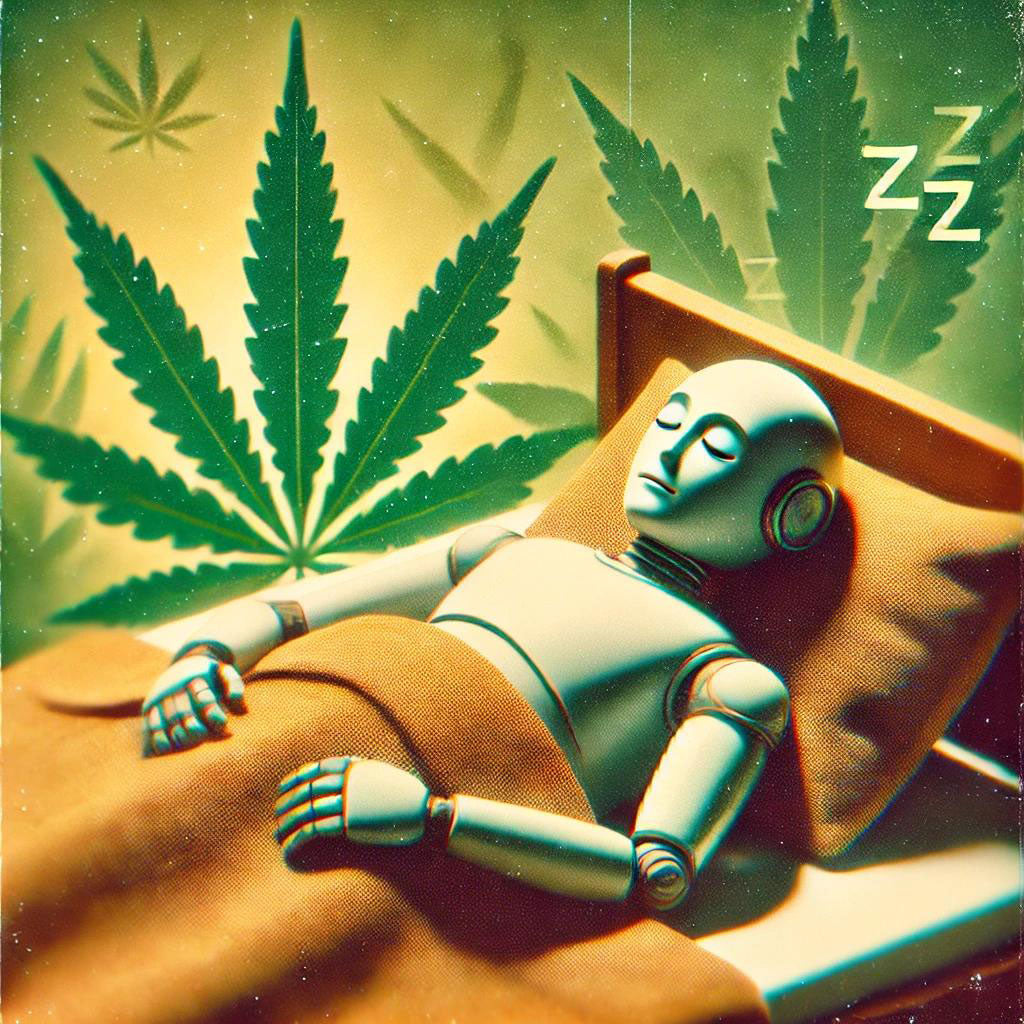
Cannabis and sleep: Research and experiences
Sleep is one of the fundamental pillars of life, but for many people, achieving it is not a given. Insomnia and poor-quality sleep directly affect well-being, concentration, and mood. At this point, many people wonder if cannabis could help them achieve better sleep. The connection between cannabis and sleep has sparked much discussion, and scientific research has also been conducted on the subject.
The effect of cannabis on sleep
The sleep-promoting effects of cannabis are mainly related to its two key compounds: tetrahydrocannabinol (THC) and cannabidiol (CBD). Both have their own mechanisms of action and can either improve or impair sleep quality depending on the dose and the user.
- THC: Several studies have shown that THC can shorten the time it takes to fall asleep and increase the duration of deep sleep. This may be especially helpful for those who suffer from insomnia or pain-related sleep disorders. On the other hand, long-term use can impair REM sleep, which is important for memory function and emotional balance.
- CBD: Unlike THC, CBD does not have intoxicating effects. It can help relieve anxiety and relax the body, which can promote sleep quality. However, high doses of CBD can even be stimulating for some people, which can make it harder to fall asleep.
Cannabis and sleep disorders
Studies suggest that cannabis may be useful in treating certain sleep disorders:
- Insomnia: Many cannabis users report that it helps them relax and fall asleep faster.
- Sleep-disordered breathing: Some studies suggest that cannabis could reduce symptoms of sleep apnea.
- Nightmares and PTSD: THC's REM sleep-reducing effect may be beneficial for those who suffer from nightmares related to traumatic experiences.
Legal status of cannabis in Finland
It is important to note that cannabis use is illegal in Finland without a prescription. Although studies suggest the potential benefits of cannabis in improving sleep, its recreational use can lead to legal consequences. For medicinal use, cannabis can be prescribed in certain cases, but its availability remains limited.
Side effects and long-term effects
While cannabis can provide relief from sleep disorders, its long-term use can also have negative effects. In particular, continuous use of THC can interfere with the natural stages of sleep, which can lead to poor sleep quality in the long term. In addition, regular use can lead to the development of tolerance, requiring higher doses to achieve the same effect.
What is the best way to use cannabis for sleep?
If you want to use cannabis to improve sleep, it's a good idea to consider a few things:
- Variety selection: Indica-dominant varieties are known for their calming effects.
- Correct dosage: Too much THC can lead to the opposite effect, such as restlessness.
- Using CBD: High CBD content can help you relax without getting high.
- Method of enjoyment: Vaporizing and oils are faster and more effective alternatives than edibles, which have a slower onset of effect.
Summary
Cannabis can help improve sleep quality and alleviate sleep disorders, but its use is not completely problem-free. In the short term, it can help you fall asleep faster and reduce sleep disorders, but long-term use can affect the structure of your sleep. If you are considering cannabis as part of your sleep hygiene, it is worth experimenting in moderation and monitoring your body and sleep quality.
Sources
- Babson, KA, Sottile, J., & Morabito, D. (2017). Cannabis, Cannabinoids, and Sleep: a Review of the Literature. *Current Psychiatry Reports, 19*(4), 23.
- Gates, PJ, Albertella, L., & Copeland, J. (2014). The Effects of Cannabinoid Administration on Sleep: A Systematic Review of Human Studies. *Sleep Medicine Reviews, 18*(6), 477-487.
- Russo, EB (2007). History of Cannabis and Its Preparations in Saga, Science, and Sobriquet. *Chemistry & Biodiversity, 4*(8), 1614-1648.
